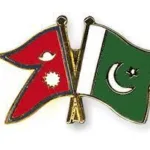Federal Minister for National Food Security and Research Rana Tanveer Hussain has called for immediate reforms in Pakistan’s agricultural sector, stressing that productivity remains alarmingly low and must be improved through scientific innovation and research-driven solutions.
Speaking at the Lahore Chamber of Commerce and Industry (LCCI), the minister announced that the government would fund agricultural research initiatives and support anyone conducting studies aimed at improving crop output. “Better seeds are the key to progress,” he emphasized, urging both the public and private sectors to invest in developing resilient, high-yield varieties.
The minister highlighted that agriculture contributes around 25 percent to Pakistan’s GDP and ranks second only to textiles in exports, yet the sector’s performance has lagged behind regional competitors. He said the government is strengthening regulatory oversight through the newly established National Seed Regulatory Authority, introducing a Track and Trace system for certified seeds, and intensifying action against counterfeit seed suppliers.
Rana Tanveer Hussain said fertilizer availability and pricing have been kept stable, while banks have been instructed to expand agricultural and SME financing to ensure farmers have better access to credit. He also mentioned that work is underway to bring the policy rate into single digits, alongside reductions in electricity tariffs for industries.
He noted that from 2013 to 2018, the government had successfully resolved severe power and gas shortages by introducing RLNG, which helped stabilise the economy and protect it from default. However, he acknowledged that tough IMF conditions continue to slow down growth.
Earlier, LCCI President Faheem-ur-Rehman Saigol warned that Pakistan faces a deepening food security crisis, with per-acre yields of wheat, rice, and cotton falling sharply compared to neighbouring countries. He said cotton production has plunged from over 10 million bales to around 7 million, while 30 percent of total produce is wasted during harvest, indicating major systemic inefficiencies.
Saigol expressed concern that despite being an agricultural nation, Pakistan continues to import food items and fertilizers, calling this “highly alarming.” He said urgent reforms are needed in seed quality, food processing, and the halal food sector to improve export competitiveness through value addition.
He also noted that as the population grows, food production is failing to keep pace, with nearly half the population now below the poverty line, fuelling social and economic instability.
Concluding his remarks, the minister said Pakistan’s agri-based industries, particularly halal meat and rice exports, have immense global potential, but the country must also reduce its dependence on edible oil imports, which currently stand at 89 percent.
Discover more from Brackly News
Subscribe to get the latest posts sent to your email.



